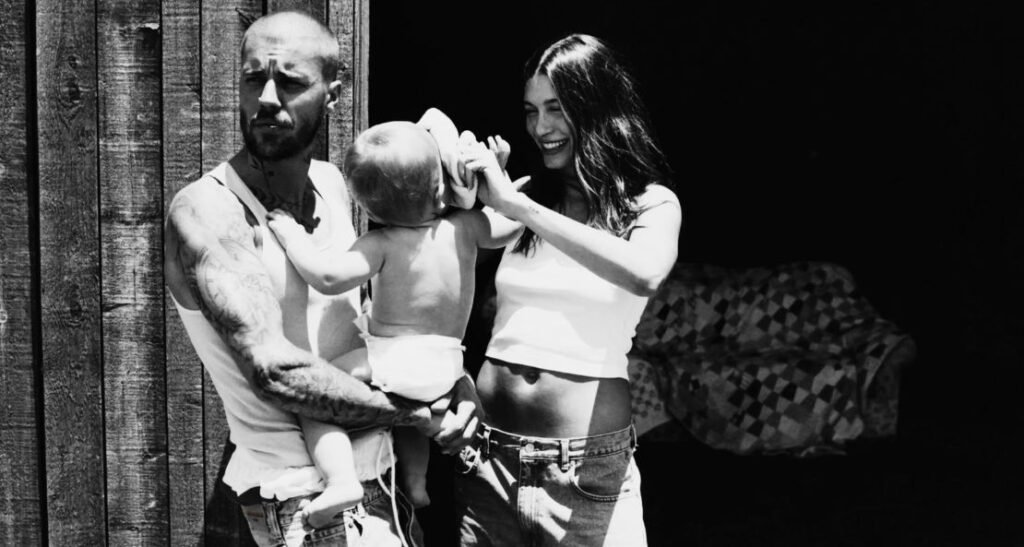Justin Bieber’s “MOTHER IN YOU” plays like a private moment set to a small acoustic frame.
It’s the sixth track on SWAG II from 5 September 2025, running about three minutes and twenty-five seconds.
The arrangement stays light: a dry lead, a picked guitar that keeps the song steady, faint percussion, low bass presence.
You can hear the finger squeak between changes, and the vocal sits a step forward without gloss.
On “MOTHER IN YOU,” he keeps the melody narrow and lets short phrases settle at line endings.
There is no late key lift, no wall of harmonies. The restraint feels intentional, and it suits the subject.
The lyrics draw a clear line. A first verse about the first look. A chorus that repeats a simple truth about seeing Hailey in their son.
He opens with “You opened your eyes / That was when I knew,” then returns to the title idea until it feels lived-in.
A small time marker in verse two sets it in an ordinary morning, which reviewers have already picked up.
Mainstream write-ups have pinned the song to Jack by name and placed it in the family arc that runs through the album.
It comes across as gently persuasive rather than grand. The hook holds to intimate detail, and the dedication and quiet tone are easy to recognise.
That repeat of the title phrase can tilt sentimental, and SWAG II has places where sugar threatens to build up, but this cut stays on the right side because the images are small and domestic.
Reviewers keep calling the sequel lighter and more direct, which fits how this song works.
On r/popheads, users are already naming “Mother in You” among first-day favourites alongside “Speed Demon,” “I Do,” and “Better Man,” while others call SWAG II more polished than SWAG.
That mix helps explain why a small song reads as a centre piece even for listeners who prefer the bigger productions elsewhere.
If there’s a critique, it lies in how plain the writing is. A few lines brush greeting-card territory, and the melody rarely stretches.
But the decision to keep everything small feels like the point.
The production avoids sheen, the vocal avoids runs, and the lyric avoids over-explaining.
Next to other SWAG II tracks, it works as a quiet statement of the sequel’s softer palette: personal, pared back, family at the centre.
Apple’s own write-up puts it plainly, noting the reflection of his wife’s face in his son’s gaze.
You might also like:
- Justin Bieber’s SWAG II Lyrics & Album Review: Daylight Pop, Vows, and a Quiet Flex
- Justin Bieber ‘Speed Demon’ Lyrics Meaning: Pace Over Noise on SWAG II
- Justin Bieber’s YUKON Music Video Is a Calm, Cinematic Rebuttal to Chaos
- First Place by Justin Bieber: Lyrics, Meaning, and the Music Video
- Justin Bieber’s Drops Swag: New Surprise Album Blends 90s Vibes
- Songs About Unconditional Love for a Child: A 2025 Neon Music Guide


